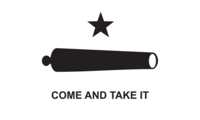I agree with you again on the highlighted points, and that's where I see the value in having these discussions. I'm looking for someone who sees the same information I'm looking at differently, or who has a tactic or solution I haven't thought of.KeithB wrote:I totally agree that 'what if' scenarios are important and should be thought about. I personally run them through my head many times daily as I go through my normal routine when I am in the quick stop, the bank, the restaurant, etc. These, along with handgun training, practice and proficiency will present you with the best odds if a real situation arises.
However, I am always reluctant to answer any Internet presented scenario with a solid answer. This is do to the extras that could play a factor in them. Each one of us will have a different view in our head as to what the presented scenario looks like, and in turn we will each answer differently. Ask any LEO or Military person who has actually been in various face to face self defense situations and they will tell you while they may be similar, no two are exactly alike, and in turn each would be handled differently due to time of day, location, bystanders, yadda yadda. I can tell you I was never in two that were totally identical as a LEO (albeit was only a 4 year stint.)
One of the good things about this forum is the sharing of knowledge, reviewing actual cases and discussing how they were handled and what could have been done better. Even then, unless you were truly involved, your methods and how you handled it will be different than the next persons view.
As a 20+ year LEO in a major metro area, I'm well aware that no two situations are alike. I'm also keenly aware that there's lots to be learned from others and the situations they've been in, regardless of how many actual incidents I've seen personally. That subtle difference in situations usually contains a lesson I can put in my internal library for future use. The most valuable information for me is often in the way the situation was recognized and analyzed to determine the best course of action.
Your position that definitive answers can't be given in theoretical situations or even actual situations with limited detail because even a small change in the information can change the best option is well taken. However, I maintain the perspective that I'm not giving or receiving legal advice in these discussions, and they give me the opportunity to make or recognize mistakes that are pointed out by others so I learn to avoid them in real life. With this in mind, I believe that there's a great deal to be gained by kicking around the pluses and minuses of the options available under a presented fact pattern and trying to find the best solution for myself, which I acknowledge may differ from the best solution for someone else under the same circumstances.
